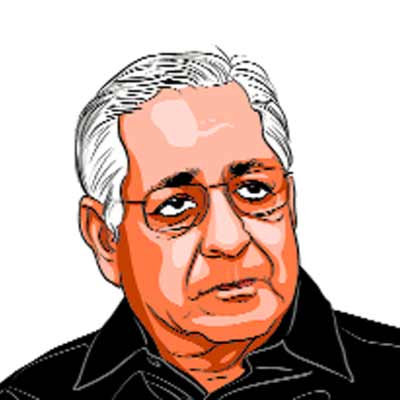Opinion Hyderabad terror attack
After the Supreme Court judgment confirming death penalty on Afzal Guru and the rejection of his mercy petition,the legal and logical course was to execute the death sentence.
Hyderabad terror attack
After the Supreme Court judgment confirming death penalty on Afzal Guru and the rejection of his mercy petition,the legal and logical course was to execute the death sentence. However the manner of execution,by hanging Afzal Guru without informing his family members and particularly before he could exercise his right of judicial review against the rejection of his mercy petition,was in violation of the basic norms of human dignity and of his constitutional rights. It is a misconception that after rejection of his mercy petition,a convict is without any remedy. Our Supreme Court has ruled that judicial review is available,albeit on limited grounds such as incorporation of considerations which are wholly irrelevant,irrational,discriminatory or mala fide. Only in these rare cases will the court examine the exercise. Hanging him in haste after rejection of his mercy petition and before he could approach the Supreme Court by way of judicial review was grossly unfair. If years were taken to dispose of his mercy petition,surely a short period of say two weeks in implementing the death penalty would not have caused grave national injury. Request for return of his body should not have been refused by a literal and insensitive interpretation of the jail manual,unless there were compelling security reasons.
It is such actions which alienate the people of Kashmir and especially the youth and invest the halo of a martyr on Afzal Guru and also afford spurious justification for terrorist acts. Persons inimical to India and Lashkar patron Hafiz Saeed,whose veins are bulging with hatred towards our country,had openly proclaimed their intention to avenge the hanging of Afzal Guru and to take effective revengeful,retaliatory action. The attack on Hyderabad,in which many innocent civilians were killed and injured,has followed. Saeed considers taking back Hyderabad along with Junagadh and Kashmir from India as the unfinished agenda of Partition of the country in 1947. It is incomprehensible why Pakistani authorities do not arrest him for inciting hatred and feelings of enmity against India under the Pakistan Penal Code,which has a provision corresponding to Section 153-A of the Indian Penal Code. There is no question of proof beyond reasonable doubt because Saeeds statements are indisputable. Apparently Pakistani authorities are not willing to do so lest it appear as a move to conciliate India. Besides,it would be unpopular to arrest the heroic Hafiz Saeed.
One thought disturbs meWhy has there not been unequivocal condemnation of the terror unleashed on Hyderabad by people who are sympathetic to Afzal Guru and critical of the manner of his execution? As long as there are people in our midst who carried out the recent terror attacks in Hyderabad and would unquestionably carry out similar attacks in future as part of their divine mission,I do not favour abolition of the death penalty. The issue is not of retribution versus reformation. The question is of self-defence and national security.
Words,words,words
The importance attached to words by some people is curious. British Prime Minister David Cameron recently visited the Golden Temple and called the Jallianwalla Bagh massacre which took place in the Twenties a deeply shameful event in British history. Some people are not satisfied and insist that Cameron should have apologised. This is a case of playing with words and ignoring the substance. I think Camerons statement is a condemnation of the shameful event with regret implicit in it.
Take the case of Home Minister Sushil Kumar Shindes statements about Hindu terror and the allegation that some political parties and outfits are associated with terrorist training. Shinde belatedly has expressed regret over his remarks. According to RSS spokesman Ram Madhav,Shinde should have apologised. Fortunately,the BJP has accepted Shindes regret and decided to end the matter. People who quibble about apology and regret should listen to an excellent jazz tune called What can I tell after I have said I am sorry?. Jazz musicians have better insight and understanding than political leaders.




